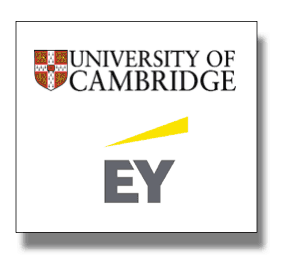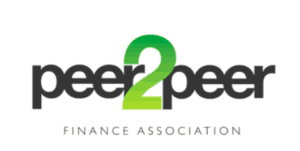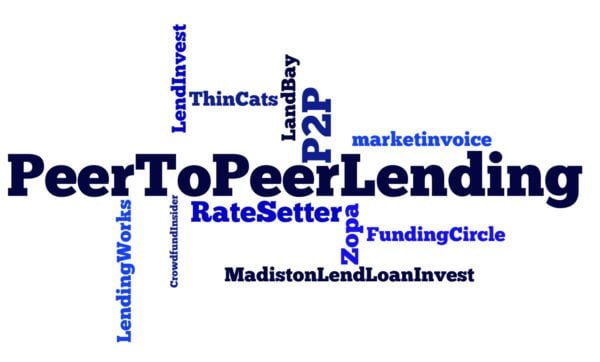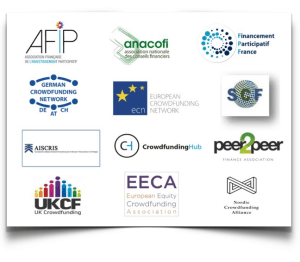 In late November The University of Cambridge teamed up with EY, the global professional services organization, and launched the European Alternative Finance Benchmarking Survey with the support of major European industry associations. As readers may know, this is the largest study to date on crowdfunding, peer-to-peer lending and other forms of alternative finance in Europe. This benchmarking survey, which opened on 25 November and closes on 20 December, aims to capture the size, transactional volume and growth of the alternative finance markets across Europe.
In late November The University of Cambridge teamed up with EY, the global professional services organization, and launched the European Alternative Finance Benchmarking Survey with the support of major European industry associations. As readers may know, this is the largest study to date on crowdfunding, peer-to-peer lending and other forms of alternative finance in Europe. This benchmarking survey, which opened on 25 November and closes on 20 December, aims to capture the size, transactional volume and growth of the alternative finance markets across Europe.
Major national and regional crowdfunding associations in France, Germany, Spain, Italy, the Netherlands, the Nordic countries and the UK are participating in this groundbreaking research. This benchmarking survey is supported by FPF, ANACOFI and AFIP (France), the German Crowdfunding Network, the Spanish Crowdfunding Association, Crowdfunding Hub (Dutch), AISCRIS (Italy), the Nordic Crowdfunding Alliance, the UK Crowdfunding Association, the P2P Finance Association, the European Crowdfunding Network, the European Equity Crowdfunding Association as well as the P2P Banking.com. Initiated with insights shared by The University of Cambridge’s Dr. Mia Gray, who along with her esteemed colleague Bryan Zhang, helped precipitate this nascent series; we are nearly midway this exclusive interview series.
 Integral to this research include a series of exclusive interviews with the thought leaders of the aforementioned collaborating crowdfunding associations. To date, readers have had the opportunity of reading interviews with European crowdfunding mavericks including CrowfundingHub Founder and Executive Board Member of the European Crowdfunding Network, Ronald Kleverlaan; President of the Board of Asociación Española de Crowdfunding Daniel Oliver; Le Crowdfunding author, AFIP and ANACOFI crowdfunding expert Marianne IIZUKA; and most recently, the Coordinator of the German Crowdfunding Network and member of the European Crowdfunding Stakeholder Forum, Karsten Wenzlaff.
Integral to this research include a series of exclusive interviews with the thought leaders of the aforementioned collaborating crowdfunding associations. To date, readers have had the opportunity of reading interviews with European crowdfunding mavericks including CrowfundingHub Founder and Executive Board Member of the European Crowdfunding Network, Ronald Kleverlaan; President of the Board of Asociación Española de Crowdfunding Daniel Oliver; Le Crowdfunding author, AFIP and ANACOFI crowdfunding expert Marianne IIZUKA; and most recently, the Coordinator of the German Crowdfunding Network and member of the European Crowdfunding Stakeholder Forum, Karsten Wenzlaff.
My next interview is with Sam Ridler, the Executive Director of Peer-to-Peer Finance Association, P2PFA, which represents 95% of the UK’s Peer-to-Peer lending market and 75% of the Peer-to-Peer Market Invoice Market. The P2PFA promotes best practice for peer-to-peer finance platform, supports members and engages with the UK regulatory authorities for fair and proportionate policy for this emerging sector. Ridler is also a member of the European Crowdfunding Stakeholder Forum, an expert group established to consider the opportunity of harmonising rules for Crowdfunding across the EU in order to both protect consumers and encourage alternate finance across the EU.
Our interview follows:
Erin: Why has the Peer-to-Peer Finance Association decided to participate in the Cambridge-EY  European Alternative Finance Benchmarking Research?
European Alternative Finance Benchmarking Research?
Sam: In December 2013 the European Commission held a consultation on Crowdfunding/P2P lending the outcome of which was a decision to set up an expert group on the sector to inform the policy-making process. At the first expert meeting it became very apparent that there is a lack of data across the EU to properly analyse it. Therefore the P2PFA sees the Cambridge-EY European Alternative Finance Benchmarking Research as an excellent opportunity to bridge that EU data gap to ensure the Commission’s policy choices are made with a sound evidence base for the Peer-to-Peer lending sector.
 Erin: The rapid growth of the various sectors indicate that peer to peer lending is clearly leading the charge – yet equity crowdfunding is rather small but growing rapidly. How do you explain this phenomenon? What about peer to peer lending?
Erin: The rapid growth of the various sectors indicate that peer to peer lending is clearly leading the charge – yet equity crowdfunding is rather small but growing rapidly. How do you explain this phenomenon? What about peer to peer lending?
Sam: In the 2014 Understanding Finance Survey UK Peer-to-Peer lending was found to have transacted £1.3 billion with average growth of 179%. Equity Crowdfunding had transacted £84m with growth of 410%. In both markets there is still plenty of room for growth but P2P lending will certainly remain much larger than Equity Crowdfunding as the traditional consumer and SME lender market which P2P competes for is far bigger than the Equity/VC.
Erin: What can the United States learn from the UK? What is your opinion on the regulatory environment in the US for P2P Lending?
Sam: No comment. The P2PFA focus is on EU and UK regulation and policy.
 Erin: How has the UK government’s approach, both elected and regulatory, acted as a catalyst to propel crowdfunding & P2P? How are regulations evolving?
Erin: How has the UK government’s approach, both elected and regulatory, acted as a catalyst to propel crowdfunding & P2P? How are regulations evolving?
Sam: The FCA has taken a proportionate approach to regulating P2P lending in a disclosure-based regime. This regulation is very much a stepping stone for the P2P lending sector without which consideration for schemes such as ISA’s and the recently announced Tax changes would not be possible.
Erin: In its findings regarding the role of women in alternative finance, the recent Nesta-Cambridge report states that women make up the majority of fundraisers in both donations based and rewards based crowdfunding. How will women move to match the predominantly male P2P and equity crowdfunding sector? What about other under-served segments of the population?
Sam: I strongly believe that when the Government launches ‘Lending ISA’s’ for P2P investments the sector will see an expansion in female investors. Thanks to the ongoing pay-gap between earnings, women tend to have less disposable income to save therefore are more likely to look to keep the funds they have in tax free savings products.
Erin: In order for alternative finance to grow, the Nesta-Cambridge report explicitly notes “the industry needs to continue innovating, educating users and addressing the various concerns consumers and SMEs have about alternative finance.” What will be done in the UK to engender such growth further?
Sam: In the UK P2P lenders are actively trying to engage and educate the public and SMEs about the sector. In recent months we’ve seen several platforms run large poster and TV campaigns and this trend will continue as the market grows. Also the introduction of a ‘Lending ISA’s for P2P will raise general consumer awareness.
Erin: Who do you identify as the trailblazing this path? Interviewees have cited the UK as the leading the way; what responsibilities does such leadership entail?
Sam: The P2PFA receives enquires from around the world from people about P2P lending. The P2PFA does a lot of engagement work with various regulators who want to learn more about the UK regulatory experience and we continue to be proactive in keeping UK policymakers and regulators aware of the opportunities and challenges of the sector.
 Erin: How do you see crowdfunding evolving across Europe?
Erin: How do you see crowdfunding evolving across Europe?
Sam: The development of P2P lending across the rest of the EU will likely remain patchy in the short term as a pan-European approach is developed. Even if a pan-European framework is developed there are still likely to be regional differences as availability of credit data and requirements of contract law differ in members states, which are areas that affect the viability of P2P platforms.
_____________________________________________________________
Crowdfund Insider has joined with The University of Cambridge to be the exclusive media partner on this benchmarking research. This interview is one of a series that includes multiple, in-depth interviews with international thought leaders and crowdfunding industry pioneers from the collaborating associations.
Please find the link to the benchmarking survey below:
https://www.surveymonkey.com/s/cambridge-ey-europeanaltfinbenchmarkingsurvey
 For benchmarking research enquiries please contact Bryan Zhang, PhD Researcher in Crowdfunding & Alternative Finance at The University of Cambridge via email zz251@cam.ac.uk or twitter @BryanZhangZ or Robert Wardrop, Research Fellow at the Judge Business School, at The University of Cambridge at rhw40@cam.ac.uk
For benchmarking research enquiries please contact Bryan Zhang, PhD Researcher in Crowdfunding & Alternative Finance at The University of Cambridge via email zz251@cam.ac.uk or twitter @BryanZhangZ or Robert Wardrop, Research Fellow at the Judge Business School, at The University of Cambridge at rhw40@cam.ac.uk

